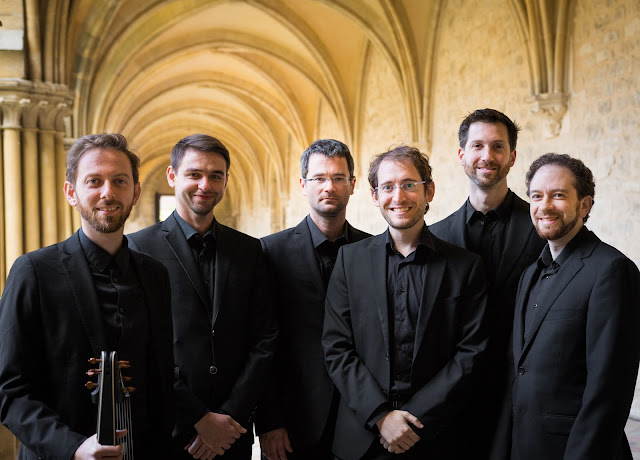 |
| Lucile Richardot |
Reviewed by Robert Hugill on 13 Mar 2018 Star rating: (★★★★ / ★★★½)
A pair of intimate concerts paying homage to two major French baroque figures
On Wednesday 16 May 2018, the London Festival of Baroque Music presented a pair of intimate concerts paying homage to two of the greatest French Baroque Composers. First Lucile Richardot (mezzo-soprano), Thibault Roussel (theorbo & guitar) and Mathilde Vialle (bass viol) presented Un hommage à Lully and then for the late-evening concert, Duo Coloquintes (Alice Julien-Laferrière - violin, Mathilde Vialle - viola da gamba) presented Un hommage à Louis Couperin.
Un hommage à Lully
It seems that everywhere we look these days we see evidence of the contribution of immigrants to a country’s economic and cultural hegemony. Seventeenth-century France was no different. Louis XII and Louis XIV owed their power to an Italian, Cardinal Mazarin (born Mazzarino) who headhunted his compatriot Giovanni Battista Lulli amongst others to ensure the Versailles court had the best in music as well as everything else.
Jean-Baptiste Lully – as he Gallicised himself – arrived in Paris at the age of 14 and the received wisdom is that he had not had much by way of formal musical training in his native Florence, that his Italian-ness was an appeal to the nostalgia of his employer, Mazarin.














.jpg)

.jpeg)





.jpeg)